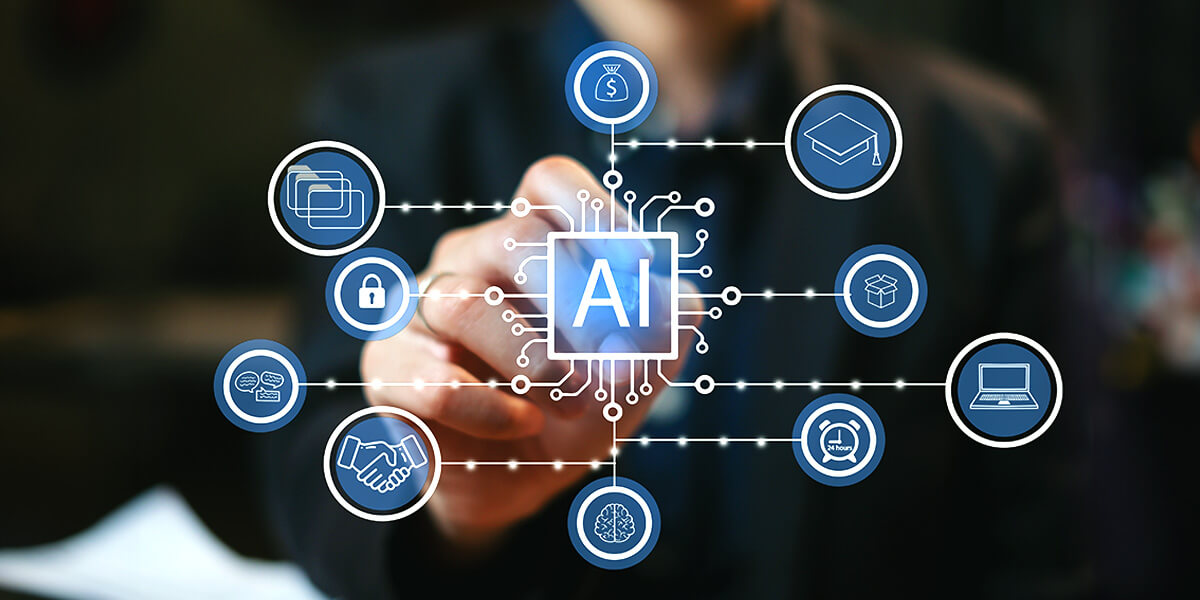Artificial intelligence is no longer a futuristic concept; it's a present-day reality reshaping industries across the globe. As we move further into 2025, AI-powered solutions are not just enhancements but fundamental drivers of transformation, impacting everything from operational efficiency to customer experiences. This article delves into the ways AI is revolutionizing various sectors, highlighting key trends and real-world applications.
AI Agents: The New Frontier
One of the most significant developments in AI is the rise of AI agents. These autonomous systems are designed to mimic human-like capabilities, including learning, reasoning, and decision-making. Unlike traditional automation, which relies on predefined rules, AI agents adapt to dynamic environments, making them invaluable assets for organizations navigating complex digital landscapes. In 2025, industry leaders emphasize that AI agents are not a futuristic vision but a present-day reality, fundamentally transforming how businesses operate.
AI agents are already making waves in several industries. In retail, for example, companies like Levi's are deploying AI-powered chatbots to recommend products tailored to individual preferences, boosting conversion rates and enhancing customer satisfaction. In healthcare, virtual health assistants are guiding patients through pre-appointment checklists and providing follow-ups, freeing up human resources for critical tasks. These examples demonstrate how AI agents can deliver tangible value across industries by automating mundane tasks, delivering actionable insights, and enabling smarter decisions, AI agents empower organizations to focus on innovation and customer value.
Transforming Business Operations
Beyond AI agents, various other AI-powered solutions are driving industry transformation. Predictive AI analytics, which combines data science, machine learning, and statistical modeling, is improving industrial operations, particularly in predictive maintenance. By forecasting equipment failures and optimizing maintenance schedules, businesses can reduce downtime and maintenance costs. In marketing, AI enables businesses to analyze customer behavior and preferences, delivering tailored content and recommendations that drive engagement and sales.
AI is also redefining industrial production, making manufacturing more intelligent, efficient, and cost-effective. AI-driven analytics enable businesses to understand customer preferences, predict purchasing behavior, and deliver tailored recommendations in real time. With intelligent automation, businesses can manage inventory, optimize pricing, and create seamless omnichannel experiences.
AI in Software Development
The software development landscape is also undergoing a radical transformation thanks to AI. AI-powered low-code platforms are enabling developers to create resilient, user-centric applications faster. Indian IT service providers, for example, are training teams to use AI tools that automate mundane coding tasks, allowing developers to focus on innovation. This evolution marks the beginning of a new era in software development, where developers guide AI systems to generate complete applications—not just lines of code. Gartner predicts that by 2028, 75% of enterprise software engineers will use AI code assistants, up from less than 10% in 2023.
Addressing Challenges and Ensuring Responsible AI Adoption
While the potential of AI is vast, it's important to address the challenges that come with its adoption. One key challenge is data management. As AI systems become more prevalent, businesses must overcome data silos and ensure data quality to maximize the value of AI-driven insights. Another challenge is ethical AI deployment. Leaders must prioritize transparency in AI decision-making processes and address issues like bias and accountability.
Companies are focused on building AI platforms that meet their enterprise customers' needs for optimized performance, profitability, and security. They're partnering across the AI ecosystem of chips companies, hyperscalers, large language models, data and software companies to create best-of-breed AI and machine learning services for cloud integrations, cybersecurity, analytics, data sharing and industry-specific solutions.
Looking Ahead
The momentum of AI transformation is only set to grow as organizations embrace it to redefine their operations and unlock greater value. By investing in integrated AI solutions and empowering teams to adapt, businesses can confidently navigate this new era of technological advancement. As AI continues to evolve, it will drive transformative advances in science, sustainability, and health, helping to address challenges like climate change and public health. The question is no longer if AI will revolutionize business but how leaders will adapt to harness its potential fully.

















